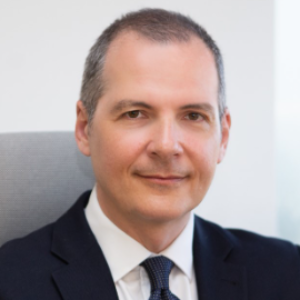Title : Bilateral distraction osteogenesis with intramedullary nails for stature increase. Our early experience
Abstract:
Distraction osteogenesis is a therapeutic principle which has been known for more than six decades. The introduction of elongating intramedullary nails in the last 20 years- initially in the form of mechanical nails (Albizzia® nail, g-nail®) and subsequently in the form of magnetically expanding nails (Precise®, Nuvasive®) - aimed to make the whole treatment process more comfortable and safer for the patient. Despite the initial enthusiasm, it soon became apparent that there were limitations with the use of these devices. The ratcheting mechanism of the mechanical nails was sometimes too painful to activate and the magnetic nails developed lytic lesions in the bone which eventually led to the withdrawal of the magnetically lengthening implants from the market. Concurrently with, and despite, the above, these internal methods of bone lengthening increased the public interest about its cosmetic applications, i.e. the cosmetic body stature increase in otherwise healthy individuals. Cosmetic orthopaedic surgery is a newly introduced, controversial concept in Orthopaedics and has already triggered ethical considerations. In this lecture we present our experience with the use of intramedullary nails for bilateral lengthening in the femur and tibia for cosmetic stature increase. In the last 5 years, we have treated patients from all over the world. We currently have: 33 patients who were treated with bilateral femoral lengthening with magnetic nails (Precise® and Stryde®) with more than 2 years minimum follow-up. 23 patients who were treated with bilateral femoral lengthening with mechanically expanding nails (G-nails®) with more than 1 year minimum follow-up and 14 patients who were treated with bilateral tibial lengthening with magnetic nails or external fixators, with more than 2 years follow-up. The following parameters were calculated for each patient and were analysed with descriptive statistics :
Percentage change of haemoglobin pre-operatively and on the first and third postoperative day.
Number of units of blood products that were transfused.
Visual analogue scale pain score postoperatively at regular intervals.
Range of movement of hip and knee pre-operatively and postoperatively at regular intervals.
Desired lengthening goal.
Lengthening index (cm/day).
Percentage success in reaching the set lengthening goal.
Disability Rate Index (DRI) pre-operatively and at 1 and 2 year post-operatively.
Cosmetic Procedure Screening Questionnaire (COPS) for Body Dysmorphic Dysphoria pre-operatively and at 1 and 2 year post-operatively.
Complications: In addition, in relation to the withdrawal of magnetic nails from the market due to their early biocompatibility issues, we have collected and analysed specific radiological data from 36 patients with Stryde® nails. We looked for signs of osteolysis, or periosteal reactions or combinations of these.
Based on our experience: All Stryde® nails (now banned from the market) should be monitored clinically and radiologically at regular intervals until implant removal. Implant removal is recommended as early as possible after consolidation of the regenerate. Bilateral femoral lengthening with mechanically expanding nails is an efficient and safe procedure, allowing full weight bearing mobilization from the day of surgery. Close monitoring of the bone healing response, daily home support and increased patient’s commitment and compliance are required during the first three weeks of the lengthening period. Implant related symptoms and bone lesions may influence a patient's functional outcome. Patient compliance and management of their expectations is crucial for a successful outcome.




